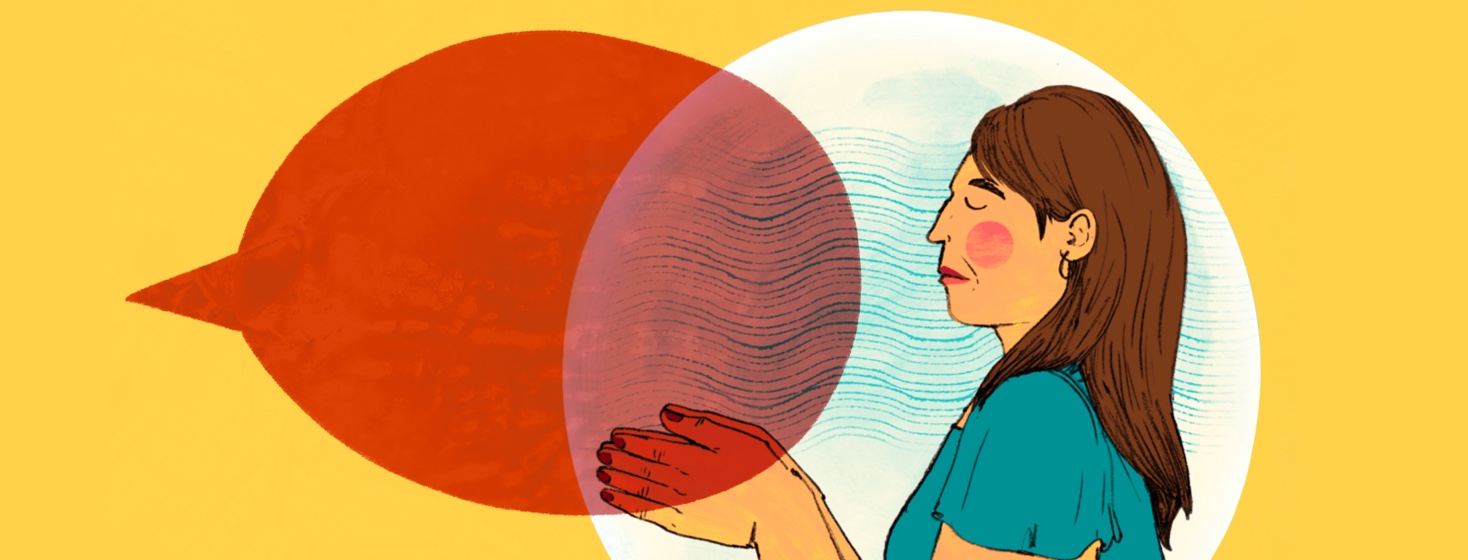Blood Cancer Is Not the Good Cancer
I am so amazed that people consider blood cancer to be the "good cancer."
I will never forget one of the first times I spoke openly about my chronic lymphocytic leukemia diagnosis. Someone said to me, "Oh, that's nothing. At least you have one of the good cancers."
This or That
Have you ever been told something dismissive of your experience, such as "Blood cancer is the 'good' kind of cancer?"
They dismissed leukemia
I couldn't believe this was being said to me publicly. I, somehow, managed to maintain my composure, asking the person what they meant.
They responded, saying, "Leukemia isn't that bad. It's not like you die from it or anything. You just live with it. So many other cancers are much worse. In fact, it's not really cancer when you think about it. It's a blood disorder!"
And as they offered their prayers, I thought... FOR WHAT??
Not the only time this has happened
I stood there in utter disbelief at what had just transpired. I would love to say that was the only time someone said something so foolish to me but I cannot.
Blood cancer IS cancer!
Let me be VERY clear for all my fellow brothers and sisters who have survived and those who survive daily. All blood cancers ARE cancer! They are affecting our lives and bodies the same way any other cancer does. While all cancers are not created equal, they definitely are similar and have the same traits.
It is also more than just leukemia. Its myeloma, lymphoma, acute lymphoblastic leukemia, acute myeloid leukemia, B-cell chronic lymphocytic leukemia, Myelodysplastic syndrome, Non-Hodgkins lymphoma, chronic myelogenous leukemia, Hodgkin's lymphoma, myeloproliferative neoplasm, hairy cell leukemia, chronic myelomonocytic leukemia, promyelocytic leukemia, juvenile myelomonocytic leukemia, follicular lymphoma, and chronic lymphocytic leukemia.
Experience varies from person to person
For some of us, we are blessed to never have to take medication or go through treatments. Our treatment is called "Watch and Wait" to see if anything additional is needed.
But most of us will experience treatment of some kind and it is not easy. First of all, all of us will be hospitalized at some point. Some of us for short periods, some periodically, and others will know the hospital as a second home. For many of us, this is where treatment begins or it increases.
Treatment can be medications, chemotherapy, and blood transfusions. You may also experience minor surgery depending on if you have ports put in or the stage of your particular blood cancer and if it's affected any other organs.
Some things to know... myeloma, lymphoma, and leukemia are not the same, so our treatments are not the same. There is also a difference between chronic and acute types of blood cancer. Those are also treated drastically differently. Yet, they are all still cancer.
We cope with the same fears and issues
What we hear and what we face when we are first diagnosed is the same as every other cancer patient. We experience the same fears.
We worry about our families. We wonder if we will be there to raise our kids, have more time with our spouses, see our grandchildren, and hug our parents just like everyone else.
We think about our future and all that needs to get done. We start to think about the importance of time and how much we have to cherish it.
We look to find support, strengthen our faith, and find joy. We face being sick, fatigued, pain, depression, PTSD, loneliness, isolation, weakness, side effects to treatments, unforeseeable reactions to treatments, and more.
We cry we scream, we yell, we pray, we advocate, we inspire others, we get through it and we cope. We learn to survive this cancer the best we can.
There is no "good" cancer
Let's hit the rewind button for just a moment. What makes a person feel they can speak to someone with cancer so dismissive?
Why do some people really think there is a "good" cancer? They really do think that blood cancer and primarily, Leukemia is a cancer that people just live with. They don't think people, excluding children, could still die from it.
And that's a sad reality. While there are many of us living fairly well, and living many years with blood cancer, we can't ignore the many who do not. My hope is that people will choose to educate themselves instead of choosing to remain ignorant of the truth which makes them insensitive. Our world needs more love!

Join the conversation